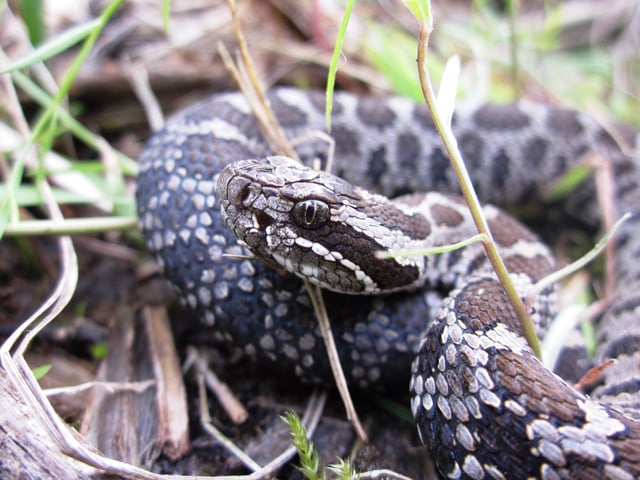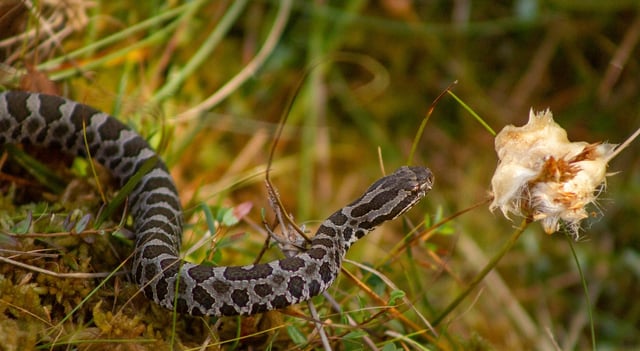Overview
- Published August 18 in PNAS, the study reports the most inbred eastern massasaugas were about 13% less likely to produce surviving offspring and had nearly 12% lower annual survival.
- Researchers tracked more than 1,000 snakes since 2009 in Barry and Cass counties using PIT tags, blood-based genomic sequencing, and pedigree reconstruction to link relatedness to fitness.
- Roads, farms, and buildings are isolating wetland populations and restricting mate exchange, with scientists noting that even a single road can separate groups.
- Because Michigan’s populations are relatively large and stable, detecting inbreeding there raises concerns for smaller, more fragmented populations elsewhere in the Midwest.
- Conservation options under discussion include restoring habitat corridors, building wildlife underpasses, and targeted translocations; the species is ESA-listed as threatened and the U.S. Fish and Wildlife Service funded the study.

